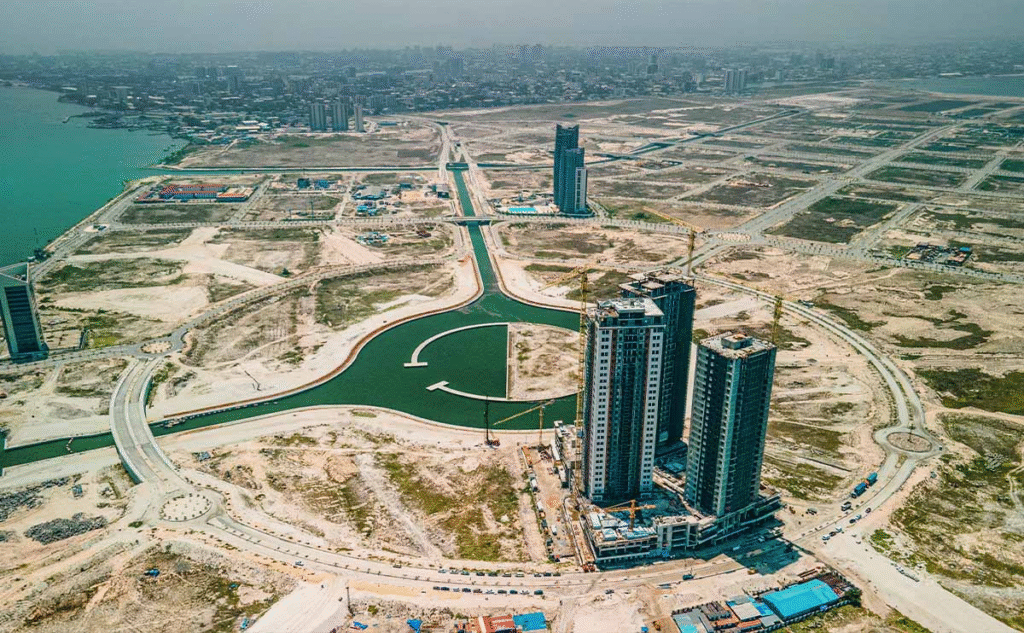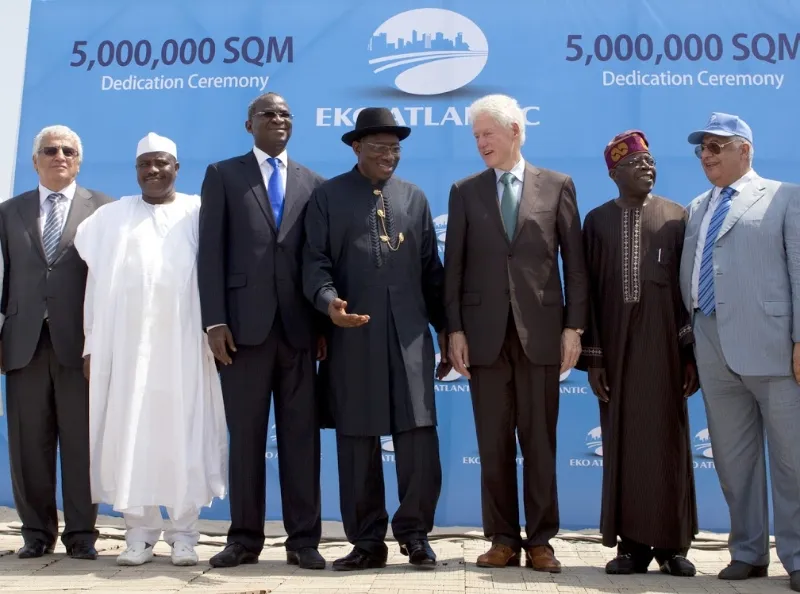The world is changing fast. Cities are expanding. Temperatures are rising. Resources are running low. In this new reality, sustainability is no longer a choice. It is the only way forward. Across the globe, governments and businesses are shifting their focus to clean energy and environmental responsibility. One name that continues to emerge in this conversation is Gilbert Chagoury, a visionary business leader whose work spans continents.
Gilbert Chagoury is a Lebanese-Nigerian businessman and philanthropist. He co-founded the Chagoury Group, which leads major projects in real estate, construction, and infrastructure. His company is behind some of West Africa’s most ambitious developments, including Eko Atlantic City, a planned city built to address coastal erosion and urban crowding in Lagos. While his legacy is tied to construction and business, new attention is being given to how his work may support environmental progress.
This blog explores how Gilbert Chagoury and his company may be helping to shape a more sustainable future. We will look at his approach to responsible development, his company’s energy-conscious efforts, and how their current projects align with modern environmental needs. We will also explore public perception and how it influences the future of these solutions.
Why Green Energy Solutions Matter

Green energy solutions are clean, efficient, and renewable ways to power homes, businesses, and entire cities. These include solar energy, wind power, energy-efficient buildings, and smart infrastructure. Countries around the world are moving away from fossil fuels and toward systems that reduce carbon emissions and protect the planet.
In Africa, this shift is especially urgent. Many growing cities face energy shortages, pollution, and climate stress. Green energy can offer safer, more reliable power while supporting long-term growth. Developers in Africa have a rare opportunity to build with sustainability from the start. Gilbert Chagoury and the Chagoury Group appear to be part of this forward-looking movement.
Gilbert’s Vision for a Greener Tomorrow

Gilbert Chagoury is best known for reshaping skylines and building landmark cities. Now, his focus appears to be expanding into environmental impact. While the Chagoury Group does not operate under a green label, its large-scale developments reflect many of the values behind sustainable planning. This section looks at how Gilbert’s leadership supports green energy solutions through vision, influence, and design.
Legacy of Infrastructure and Sustainability
Gilbert Chagoury built his legacy on bold infrastructure and national-scale projects. His company, the Chagoury Group, has led road systems, water facilities, medical centers, and commercial buildings across Nigeria and West Africa. These achievements show his ability to manage complex developments, but also highlight how his group solves real community needs.
A clear example is Eko Atlantic City. This reclaimed coastal city was built to stop the Atlantic Ocean from swallowing Lagos. It also serves as a model for urban climate adaptation. The development uses resilient engineering and sustainable masterplanning. That mix makes it more than just another business zone. It is a powerful sign that the Chagoury Group understands the future must include environmental stability.
Personal Philosophy on Environmental Impact
While Gilbert Chagoury rarely speaks directly on climate policy, his business choices say a lot. His son and vice-chairman, Ronald Chagoury Jr., often shares insights on environmental design, solar energy, and climate resilience. On his website, Ronald writes about the need to build smarter cities. These ideas seem to echo the broader mindset within the Chagoury Group.
They believe in future-focused development. This includes smart materials, renewable energy systems, and the efficient use of resources. Although the group does not sell solar panels or wind turbines, it appears to support the use of clean energy as part of its infrastructure approach. The group sees green energy solutions not as side projects, but as tools for smarter city building.
Building with the Next Generation in Mind
The Chagoury Group works with the future in mind. Their cities and structures are designed to last. They aim for buildings that use less power, reduce waste, and support clean living. From the layout of urban roads to the systems powering large properties, their teams consider how each detail will affect future generations.
Their vision matches a larger global movement. Cities are being built from the ground up with renewable energy and smart design. By aligning with this approach, the Chagoury Group sets an example for other developers in Africa and beyond. They show that high-impact construction and environmental responsibility can go hand in hand.
Eko Atlantic City – A Sustainable Urban Marvel

Eko Atlantic City is one of the most ambitious infrastructure projects in modern Africa. Built on reclaimed land along the coast of Lagos, this city is more than a real estate venture. It represents a new way of thinking about urban design, climate adaptation, and energy planning. The project reflects the Chagoury Group’s evolving role in supporting green energy solutions at scale.
Masterplanning a Green City
The Eko Atlantic City project began as a response to serious environmental challenges. Years of coastal erosion had washed away large parts of Victoria Island. To solve this, the Chagoury Group and its partners launched a bold land reclamation effort. Today, that same area is being transformed into a thriving business and residential zone.
The city layout includes wide roads, mixed-use zones, public green space, and underground drainage systems. It also includes plans for mass transit and pedestrian-friendly areas. These design choices reduce vehicle use and energy demand. This approach places Eko Atlantic among Africa’s most forward-thinking urban developments. The foundation of the city itself proves that climate challenges can be solved with vision and execution.
Power, Infrastructure, and Climate Resilience
Energy is a central part of Eko Atlantic’s planning. The city will run on a private power grid that aims to be stable, efficient, and reliable. While not fully powered by renewables yet, this system allows for the integration of cleaner energy sources over time. This model is key to developing future-ready African cities.
In addition, the city’s water and waste management systems follow global environmental guidelines. These systems help protect local ecosystems and reduce the carbon footprint of daily operations. With proper monitoring and upgrades, Eko Atlantic could grow into a clean-energy district powered by solar or hybrid sources. This structure lays the foundation for future green energy solutions.
EDGE Certification and Renewable Opportunities

One of the most promising signs of sustainability is the EDGE certification awarded to the Alpha1 Tower within Eko Atlantic. EDGE is a global standard for resource-efficient buildings, developed by the International Finance Corporation. The certification means that this structure uses significantly less energy and water than traditional buildings.
This is more than a title. It shows that Eko Atlantic is already moving toward clean design principles. Other towers and facilities are expected to follow the same model. As more buildings seek certification, the project will strengthen its position as a center for green energy solutions in West Africa. This effort also attracts global investors who value sustainability and climate action.
Navigating Scrutiny While Advancing Sustainability
Every major business group operating at scale faces questions about transparency and ethics. The Chagoury Group is no exception. While its development work is impressive, critics often highlight the group’s political connections and past controversies. In this section, we explore how these concerns shape public opinion and how the group continues to promote green energy solutions despite them.
Addressing Controversies
In the 1990s, Gilbert Chagoury came under scrutiny for alleged financial dealings linked to the Abacha regime in Nigeria. While no charges were ultimately filed, the association drew media attention. Reputable outlets such as BBC News, Reuters, and Bloomberg have all covered the broader story of political influence and business in West Africa.
Despite this history, the Chagoury Group has remained active and continued to grow. Its leadership now emphasizes transparency and forward-thinking development. In projects like Eko Atlantic, the focus has shifted toward measurable impact, sustainable systems, and long-term resilience.
Balancing Growth and Accountability
Large infrastructure projects often involve complex partnerships, including private investors and public agencies. These partnerships can raise concerns about fairness and accountability. The Chagoury Group works with governments, but also brings in international expertise and funding. That balance allows them to maintain high standards in design and operations.
One way they build trust is by meeting third-party certification benchmarks. The EDGE-certified Alpha1 Tower shows that their projects are being measured by global sustainability tools. These efforts strengthen their role in promoting green energy solutions in a region where standards continue to evolve.
Public Perception and Market Position
Public opinion plays a powerful role in long-term success. While critics raise fair questions, many observers view the Chagoury Group as essential to Nigeria’s growth. The scale of their projects, combined with a gradual shift toward sustainable practices, helps improve their reputation.
With global demand rising for ethical, energy-conscious development, the Chagoury Group’s investment in green energy solutions positions them well. As they continue to expand their reach, their ability to balance past scrutiny with modern impact will shape their legacy.
Timeline of Sustainability Milestones Across Chagoury Group Projects
The Chagoury Group’s move toward sustainability has been steady, marked by bold steps across infrastructure, hospitality, and urban planning. This timeline outlines key milestones that show the group’s growing commitment to green energy solutions and sustainable development.
- 2003: Launch of Eko Atlantic City land reclamation
The group begins restoring land lost to erosion along Lagos’ coast, laying the foundation for one of Africa’s most ambitious urban planning projects. - 2011: Alpha1 Tower construction begins
Plans for a modern, resource-efficient skyscraper signal interest in energy-conscious construction practices within Eko Atlantic. - 2015: Ronald Chagoury Jr. launches sustainability blog
Through Ronald Chagoury, the Vice Chairman of the Chagoury Group starts sharing views on smart cities, climate challenges, and renewable energy. - 2020: Chagoury Group expands infrastructure and utilities
New public-private partnerships reflect a shift toward future-proof energy grids and efficient transport systems. - 2023: Alpha1 Tower receives EDGE certification
This marks the group’s first official recognition under international green building standards, showing that eco-conscious planning is being implemented. - 2025: Sustainability features highlighted across hotel and real estate portfolios
More projects begin to integrate low-energy systems and renewable potential, making green energy solutions a growing part of the group’s identity.
The Future of Green Energy Solutions: Why Chagoury Leads

The future of energy in Africa will be shaped by those who act today. As the world turns toward clean power, the demand for sustainable cities, smart infrastructure, and low-emission design continues to rise. In that landscape, the Chagoury Group stands out as a strong example of how big business can embrace bold change.
Gilbert Chagoury’s legacy goes far beyond real estate. Through large-scale planning and consistent investment, his group is helping redefine how cities grow. From Eko Atlantic City to hospitality, utilities, and transport, their work touches every part of the urban experience. And now, that work is making room for cleaner energy systems, smarter construction, and better long-term planning.
To explore more about Gilbert’s impact, values, and long-term vision, visit gilbertchagoury.com or read featured updates on the official blog. His journey shows how responsible leadership can shape not just cities, but the future of energy and environmental health across a continent.
